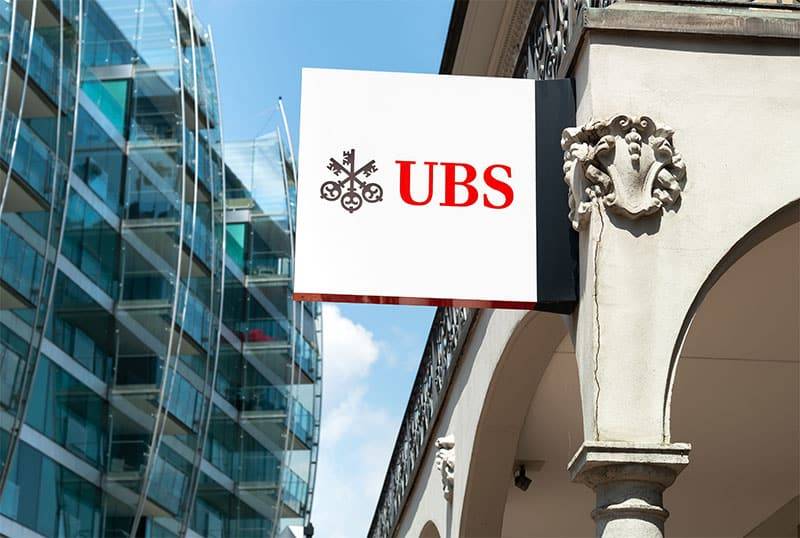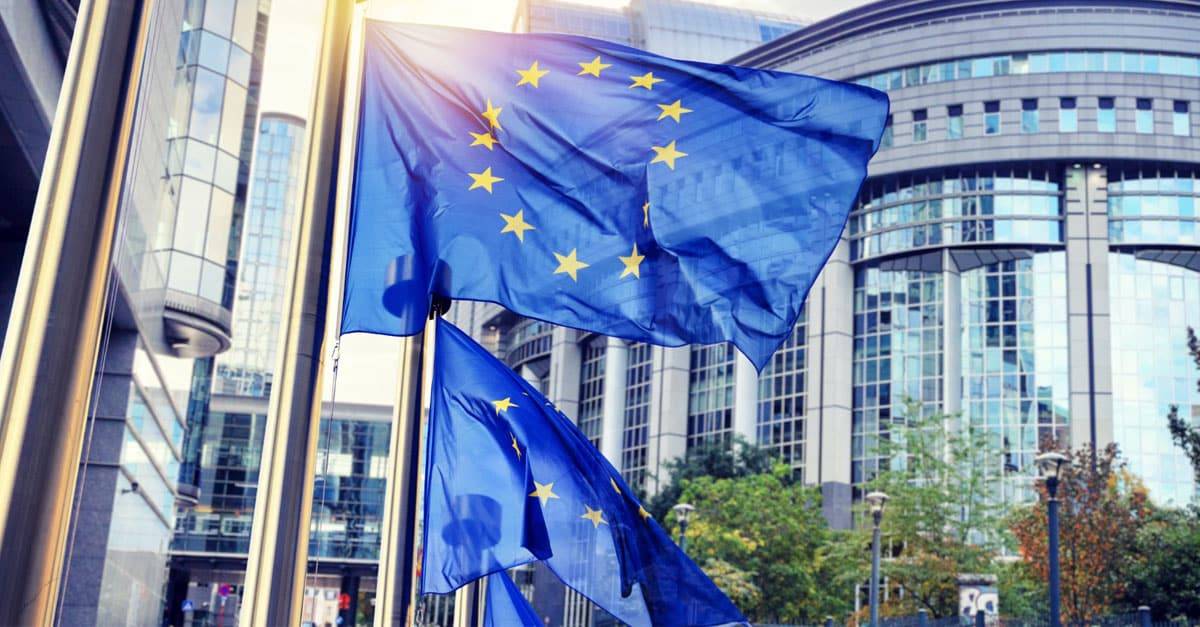Therefore, Swiss politicians wish to prevent UBS from entering a similar precarious situation in the future. Last Friday, a committee of researchers, financiers, and business representatives published reform proposals and lessons learned from the Credit Suisse debacle.
According to the report by the council of experts, which included Basel economics professor Yvan Lengwiler, “a takeover within Switzerland will no longer be an option if UBS is in crisis, because UBS is the only remaining globally systemically important bank in the country.” The question of how a significant bank could be liquidated is therefore “of increasing importance. Experts submitted four reform proposals for this reason.
01 Enhanced Risk Management
The triumvirate of the Ministry of Finance, the financial supervisory authority Finma, and the SNB found a solution to the crisis with the state-orchestrated emergency rescue of UBS, according to the experts. The experts conclude, however, that the decision-making process is incomprehensible and disturbingly devoid of institutionalisation.
They propose, among other things, that the Finance Ministry, Finma, and SNB should share future responsibility for winding down the bank or managing the crisis. The coordination of authorities in responding to crisis scenarios should be assessed periodically through crisis simulations, according to the experts.
Elevate Your Wealth Game: Empowering UHNWIs for Simplified Asset Management. Altoo Platform Preview
02 More Power For Finma
The experts observe that the financial regulatory agency Finma did impose sanctions against Credit Suisse. However, these so-called enforcement proceedings did not produce the desired results. “Compared to foreign supervisory authorities, Finma has fewer instruments at its disposal to enforce effective supervision,” conclude the experts. Therefore, they propose that in the future Finma should be able to impose organisational changes on systemically significant banks to make them more amenable to early restructuring. In addition, Finma should be able to intervene and prescribe protective measures prior to the emergence of an insolvency risk. After Credit Suisse’s demise, Finma itself had demanded more rigorous instruments.
03 Improved Liquidity Supply
In March, when the banking storm was at its worst, Credit Suisse clients took out up to $10 billion a day. But Switzerland wasn’t ready for such a rush on the banks. It had to come up with state-backed emergency cash aid. In other places, these kinds of instruments are common. So, the experts say that these aids, which are backed by the government, should be made into laws. Finma should also be able to tell highly important banks that, before they are restructured, they need to put enough collateral with the SNB and foreign central banks so that they can get cash money in a crisis.
04 Reform Of Subordinated Bonds
The write-off of certain subordinated bonds issued by Credit Suisse during the rescue has stunned investors. Approximately 16 billion Swiss francs were squandered on these so-called AT1 bonds. The fact that creditors suffered a comprehensive loss while Credit Suisse shareholders did not sparked widespread confusion. Therefore, the specialists advise that the Swiss AT1 bond clauses be adapted to international standards. The market must be revitalised.
The expert panel’s suggestions won’t change anything right away, but they are likely to be included in next year’s review of how the government regulates big banks. As Switzerland awaits the federal election on October 22, 2023, the future of the Swiss banking system is one of the important election topics as well. The two biggest Swiss groups probably don’t think the plans go far enough. The Social Democrats also want highly important banks to stop giving bonuses and have higher capital standards. The Swiss People’s Party is a right-wing conservative group that wants banks to be able to get help in an emergency. It also says that savings, lending, and asset management banks should be kept separate from banks that do their own business.
Act Of Unprecedented Rescue
Economically, the acquisition of Credit Suisse by UBS is historic – Switzerland will now have only one significant bank, and the 167-year-old Credit Suisse will be exiled to the annals of history.
Switzerland is also venturing into uncharted legal territory – the federal government is instituting emergency law comparable to the pandemic in order to prevent severe economic damage. According to the Federal Constitution, in exceptional situations, the Federal Council may resort to emergency law to counter an imminent serious disturbance of public order.
As is well known, the Federal Council already ordered drastic measures on this basis during the pandemic.
Once again, 15 years after UBS’s rescue, taxpayers must bail out a significant bank. And this, despite the fact that, in the wake of the financial crisis, a sophisticated system for the restructuring and resolution of large institutions was constructed to prevent this very scenario.Additionally, Credit Suisse is the company that Switzerland is attempting to save.
It gained a reputation for numerous scandals, but until recently it compensated its top executives generously.

UBS – A New Superbank Emerges
The Swiss Federal Government and the SNB support the merger not to benefit Credit Suisse (CS) shareholders, but rather to ensure financial stability. By resolving a severe issue at a systemically significant bank, however, they create a new issue. UBS and CS will merge to form a bank with a total balance sheet of more than 1.5 trillion Swiss francs. That is nearly twice Switzerland’s gross domestic product.
If the federal government abandons its “too big to fail” regulations for CS and steps in as a saviour in case of dispute, how would it handle a bank that is nearly three times as large? There is a risk that the “new UBS” will profit even more from a de facto state guarantee and become a national cluster risk.
How influential are UBS and CS within Switzerland? Using the balance sheet total as a benchmark, the combined bank accounts for approximately 28% of the domestic financial industry. In mortgage lending, for instance, where the market share of the largest banks is 26%, their influence is marginally diminished.
However, UBS with Credit Suisse thus became one of the 25 largest banks worldwide. The balance sheet total of 1.5 trillion dollars is now more than twice the size of Switzerland’s Gross Domestic Product.
| Current rank | Previous rank | Current vs. previous | Company | Headquarters | Accounting principle | Total assets (US$B) |
|---|---|---|---|---|---|---|
| 1 | 1 | NC | Industrial and Commercial Bank of China Ltd. (1398-SEHK) | China | IFRS | 5,742.86 |
| 2 | 2 | NC | China Construction Bank Corp. (939-SEHK) | China | IFRS | 5,016.81 |
| 3 | 3 | NC | Agricultural Bank of China Ltd. (1288-SEHK) | China | IFRS | 4,919.03 |
| 4 | 4 | NC | Bank of China Ltd. (3988-SEHK) | China | IFRS | 4,192.12 |
| 5 | 5 | NC | JPMorgan Chase & Co. (JPM-NYSE) | U.S. | U.S. GAAP | 3,665.74 |
| 6 | 7 | ▲ | Bank of America Corp. (BAC-NYSE) | U.S. | U.S. GAAP | 3,051.38 |
| 7 | 6 | Mitsubishi UFJ Financial Group Inc. (8306-TSE) | Japan | Japanese GAAP | 2,967.91 | |
| 8 | 8 | NC | HSBC Holdings PLC (HSBA-LSE) | U.K. | IFRS | 2,864.59 |
| 9 | 9 | NC | BNP Paribas SA (BNP-ENXTPA) | France | IFRS | 2,849.61 |
| 10 | 10 | NC | Crédit Agricole Group | France | IFRS | 2,542.61 |
| 11 | 11 | NC | Citigroup Inc. (C-NYSE) | U.S. | U.S. GAAP | 2,416.68 |
| 12 | 14 | ▲ | Postal Savings Bank of China Co. Ltd. (1658-SEHK) | China | IFRS | 2,039.56 |
| 13 | 12 | Sumitomo Mitsui Financial Group Inc. (8316-TSE) | Japan | Japanese GAAP | 2,006.75 | |
| 14 | 15 | ▲ | Mizuho Financial Group Inc. (8411-TSE) | Japan | Japanese GAAP | 1,909.35 |
| 15 | 18 | ▲ | Bank of Communications Co. Ltd. (3328-SEHK) | China | IFRS | 1,883.72 |
| 16 | 16 | NC | Wells Fargo & Co. (WFC-NYSE) | U.S. | U.S. GAAP | 1,881.02 |
| 17 | 19 | ▲ | Banco Santander SA (SAN-BME) | Spain | IFRS | 1,853.86 |
| 18 | 17 | Barclays PLC (BARC-LSE) | U.K. | IFRS | 1,823.84 | |
| 19 | 13 | JAPAN POST BANK Co. Ltd. (7182-TSE) | Japan | Japanese GAAP | 1,719.92 | |
| 20 | 34 | ▲ | UBS Group AG (UBSG-SWX) | Switzerland | IFRS | 1,679.36 |
| 21 | 20 | Groupe BPCE | France | IFRS | 1,636.35 | |
| 22 | 21 | Société Générale SA (GLE-ENXTPA) | France | IFRS | 1,588.99 | |
| 23 | 26 | ▲ | Royal Bank of Canada (RY-TSX)* | Canada | IFRS | 1,544.17 |
| 24 | 23 | The Toronto-Dominion Bank (TD-TSX)* | Canada | IFRS | 1,524.83 | |
| 25 | 25 | NC | China Merchants Bank Co. Ltd. (600036-SHSE) | China | IFRS | 1,470.00 |
Source: S&P Global
After The Takeover Of The Credit Suisse – UBS With A Profit Of 29 Billion Dollars
UBS is entirely acquiring its former competitor, Credit Suisse. Last week, UBS CEO Sergio Ermotti rejected Swiss legislators’ requests to hive off Credit Suisse in Switzerland as a separate bank. He stated that all options had been thoroughly examined and told media representatives in Zurich, “It is crystal clear that the only viable option was to fully integrate the business.”
Not only was the Swiss subsidiary overly reliant on the parent company for its IT infrastructure, but also for its funding. Therefore, the integration is the optimal solution for customers, employees, and the Swiss economy.
In addition, Credit Suisse’s Swiss business has been severely affected by the parent company’s crisis, which UBS took over in mid-March as part of a state-orchestrated rescue operation.
Credit Suisse’s second-quarter 2023 numbers, which UBS reported separately on Thursday for the final time, also demonstrate this. The formerly second-largest Swiss bank incurred deficits across all business sectors. The cumulative deficit was greater than nine billion dollars. The investment bank alone lost nearly two billion dollars, while asset management lost over one billion. And the private and corporate client business in Switzerland also declined after the bank’s earnings crested.

Sergio Ermotti returns as the CEO of UBS. Furthermore, Sergio Ermotti replaced Ralph Hamers as UBS bank CEO, Colm Kelleher remained its Chairman of the Board of Directors. Ulrich Körner, previously managing director of Credit Suisse, moves to the group executive board of UBS. UBS acquires Credit Suisse on March 19, 2023, in a rescue orchestrated by Swiss authorities to prevent a banking sector collapse.
Source: Simon Dawson/Bloomberg
Profits for UBS after Credit Suisse’s acquisition
UBS announced further that despite the billions of dollars in losses at Credit Suisse, the emergency seizure resulted in a record-breaking profit of 29 billion dollars. The preceding: UBS paid approximately $3 billion for Credit Suisse, which had approximately $43 billion in equity capital on its balance sheet at the time. UBS must record the difference between the equity capital, purchase price, and restructuring costs as a special profit, or so-called badwill, on its own balance sheet.
However, the balance sheet profit resulting from the Credit Suisse acquisition continues to fall short of analyst expectations. In March 2023, UBS informed its shareholders that the book value per share would rise by 74%. Analysts estimate that this would have increased UBS’s book value by between $35 billion and $40 billion.
UBS received roughly 16 billion Swiss francs in “net new money”. The UBS CEO explained that only 2% of clients who withdrew funds from Credit Suisse had closed their accounts. Accordingly, he stated that UBS was well-prepared for competitors’ efforts to continue attracting clients and investing funds in UBS.
Global Wealth Management is likewise demonstrating to be relatively stable. Profits before taxes in UBS’s most important division decreased by four percent compared to the same quarter in the prior year. The investment bank only generated a pretax profit of 139 million dollars, which is 66% less than the previous year. UBS must also contend with declining profits in asset management.

























